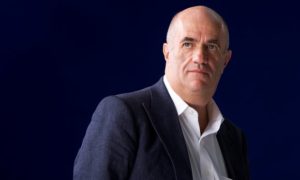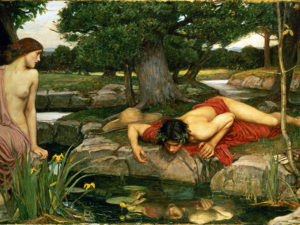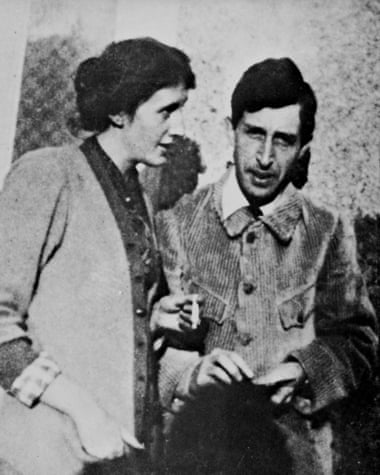June 10, 2017 at 5:13 pm
Greetings, Corelings. This week we bring you news of art installations, controversial reinterpretations of plays from the literary canon, and more. Read on:

Hanging around. (Photo: Various & Gould Studio)
- Delacorte Theater in Central Park, NYC, presents a performance of Shakespeare’s Julius Caesar, directed by Oskar Eustis, that bears a (controversial) resemblance to the current situation in the United States. The show closes on June 18.
- “Whether its Coleridges nightingale or Petrarchs, Ted Hughess wren or Shelleys skylark, Helen Macdonalds hawk or Max Porters crow,” birds and birdsong are classic metaphors in poetry and literature. So why do birds sing? Author Richard Smyth hopes to find out in his book A Sweet, Wild Note.
- Did you know that Descartes wasn’t appreciated before the 19th century? Did you also know that St. Teresa of Avila, a 16th-century Catholic mystic from Spain, established the foundation to Descartes’ Cogito argument? Read moreon Quartz.
- Turns out Bob Dylan referenced Homer in a lecture upon receiving the Nobel Prize in Literature. Long quotation incoming:
“When Odysseus in The Odyssey visits the famed warrior Achilles in the underworld Achilles, who traded a long life full of peace and contentment for a short one full of honor and glory tells Odysseus it was all a mistake. ‘I just died, thats all.’ There was no honor. No immortality. And that if he could, he would choose to go back and be a lowly slave to a tenant farmer on Earth rather than be what he is a king in the land of the dead that whatever his struggles of life were, they were preferable to being here in this dead place. Thats what songs are, too. Our songs are alive in the land of the living. But songs are unlike literature. Theyre meant to be sung, not read… I return once again to Homer, who says, ‘Sing in me, O Muse, and through me tell the story.’” (source)
That’ll be it! May your days be blessed with tolerable warmth and limited UV radiation.
By cdossett
|
Posted in Friday Fun, In the News
|
Tagged weekly links
|
June 4, 2017 at 8:43 pm
Colm Toibin is an author whose latest novel, House of Names, a retelling of a Aeschylus' The Oresteia, has graced fine book stores everywhere. Alex Preston, writing forThe Guardian, notes, however:

Colm Toibin: like a great actor, taking the framework of the play and providing nuance, humanity. Photograph: Murdo MacLeod for the Observer and the Guardian.
I say ostensibly a retelling, because House of Names gives us so much that isnt in the original trilogy (and excludes so much that is, but more of that later). This is a novel that is a celebration of what novels can do. It gives us interiority, specificity, the in-between stuff that is the fabric of life. We see everything that happens off stage in the plays, and this is what really interests us. Its not just the violence, which famously takes place out of sight of the audience, but the form of the novel allows Tibn to delve deeply into the inner lives of his characters, to give shape to their everyday worlds. I dont mean here to privilege the novel over drama but rather to make a link between the two. Tibn is like a great actor, taking the framework provided by the events of the play and providing psychology, motivation, nuance, humanity.
The House of Names, it appears from Preston's glowing remarks, will be among the increasinglyscarce works of art thatkeep the novel from becoming moribund. As Toibin shows, on way to sustain its relevance is by integrating it with conventions of the drama to create a novel form of the novel.
Read his full post atThe Guardian
By Kush Ganatra
|
Posted in Great Books
|
Tagged Aeschylus, drama, novel, Toibin
|
June 3, 2017 at 1:42 pm
Happy June, Core folk! Our hope for this month is that the sun will finally emerge (but not too much).
- Turns out Montaigne was an early promoter of bibliotherapy (as well as the unreliability of relationships with other people). An insight: Human beings will abandon you, but books will never leave.
- Candide, An American Dream is writer-director Ken Finkleman's modern-day take on Voltaire's work. The film runs from June 2-4 at the Royal Cinema in Toronto, Ontario.
- Speaking of updates, Jeff James and James Yeatsman bring Jane Austen's Persuasion to the stage in a production that features a playlist with songs by Nicki Minaj, among others, as well as bikinis, a dance floor, and a distinct lack of crinoline. It runs until June 24th at the Royal Exchange in Manchester, England.

Anne (Lara Rossi, right) and Antony Bunsee. (Photograph: Johan Persson)

"Goethe: Life as a Work of Art," by Rdiger Safranski and David Dollenmayer (Liveright)
Well, that should do it. Until next week, scholars!
By cdossett
|
Posted in Friday Fun, In the News
|
Tagged weekly links
|
May 28, 2017 at 3:21 pm
STEM has its roots in the humanities. If our intellectual foundations are uprooted, then, naturally, the natural sciences and their applications are in danger of withering away. This is a strong reason for the protests that followedPresident Trump's beginning attempts to deforest our education, which might have had in mindthe prospect of recreating America in his own image. The resistance included the engineers, who managed to circle his legs with enough rope to fell the giant before theswipe atthe National Endowment for the Humanities and the National Endowment for the Arts. For Kenneth Osgood, this was very good. But we shouldn't be surprised that the engineers clanked themselves into alliance with the poets and painters, because as humans the humanities should be importantto them as well.

Adam Niklewicz for The Chronicle
Thats why, when hundreds of recruiters descend on my campus twice each year, I make a point of understanding their needs. I ask any I encounter the same thing: "What are you looking for from our graduates?" Without fail, I get a version of the same answer. Yes, they want technical skills. But they also want something broader. They want to hire engineers who can communicate and think critically, who can adapt and create, who can assess the quality of conflicting information, and who can view a problem from multiple perspectives. These are the core skills cultivated by the liberal arts, and Ive never met an employer who didnt think they were more important than most other people think.
We should therefore not be searching to winnow the humanities from the fields of study belonging to STEM but to integrate them into STEAM. Diversity and the diversification of labor are two trends that will not bear the fruits wewant them if there is no force to integrate whatever is being made more colorful.The fashion condones both without considering this qualification because it might resist the fashion, which always looks best when it comes in one-piece.The admission that the humanities need to serve a more integrated role in education would therefore require some integrity from administrators in a time when politics and educations are themselves becoming increasingly integrated.
Read his full post at The Chronicle of Higher Education.
By Kush Ganatra
|
Posted in Academics, Art, Great Ideas, Great Questions, Science
|
Tagged Humanities, Liberal Arts, STEM
|
May 27, 2017 at 1:09 pm
Helloooo scholars! Today we're going to distract you from the lateness of this post with the (ahem) greatness of these links. Read on:
- Dr. Du Bois and Miss Ovington closed at the Robey Theatre last Sunday, May 21, at the Los Angeles Theatre Center. The production explores the dynamics between W.E.B. Du Bois and Mary Ovington, who together would go on to help form the NAACP (National Association for the Advancement of Colored People).
- Every portrait, a different story: Six portraits of Jane Austen will be shown at an exhibit entitled The Mysterious Miss Austen at the Winchester Discovery Center in Hampshire in the UK.
:focal(365x300:366x301)/https://public-media.smithsonianmag.com/filer/0c/56/0c565ac6-b9f3-4f47-93b3-3a89d0164dbd/jane_austen_by_james_andrews_watercolour_1869_c_private_collection_courtesy_of_the_19th_century_rare_book_and_photograph_shop_stevenson_maryland.jpg)
This portrait's story: disappointing, according to curator Kathryn Sutherland. James Andrews, Jane Austen (1869), watercolor (Private collection, courtesy of the 19th Century Rare Book and Photograph Shop, Stevenson, Maryland)
- Where do babies come from? Aristotle, da Vinci--everybody's got a hot take for Edward Dolnick's recently published book The Seeds of Life: From Aristotle to da Vinci, from Sharks Teeth to Frogs Pants, the Long and Strange Quest to Discover Where Babies Come From. One belief the author examines: "The prevailing wisdom was that God not only created all living creatures during the first week of Genesis, but that he created all generations of all creatures back then. By this logic, Eves egg (or Adams semen) contained miniature humans who in turn contained miniature humans, and so on like an infinite set of nesting dolls."
- Dorothy Fortenberrys Species Native to California is an update ofChekhov's The Cherry Orchard for Trump's America. The production runs through June 11 at the Atwater Village Theatre.
- Aristotle got it wrong when he proposed that there are five senses; in fact, Barry C. Smith of the Centre for the Study of the Senses at the University of London claims that there are at least 22 and maybe as many as 33.
That should do it! We hope the summer months continue to treat you well.
By cdossett
|
Posted in Friday Fun, In the News
|
Tagged weekly links
|
May 19, 2017 at 11:10 pm
Shahidha Bari must be applauding her article for the TLS, 'In Praise of Narcissism", which attempts a reappraisal at the figure some of us have the pleasure of finding staring us in the mirror. Many wild theories have been proposed to explain these beautiful people, including ones that have expanded their definition of narcissism to include those for whom beauty is only in the eye of the beholder. But what's wrong with being full of ourselves? For Bari, narcissism can be fruitful for philosophical introspection:

Illustration for the TLS.
These kinds of self-reflections are not always wasteful. We are accustomed to the idea of a contract-based culture of rights and responsibilities whereby we abide by laws andfulfillobligations, but we might also think about the ways in which civic society is predicated on ideas of self-cultivation, not far removed from narcissism. We can care for the self as the ancient Greeks once did. This is what Michel Foucault reflects on towards the end of his life, his body pitilessly ravaged by illness. This kind of self-care can take different forms writing, reading, eating, exercising but also training oneself to be a citizen, committed to a community in which all human beings are possessed of the same dignity we attribute to ourselves.
So Bari isnot talking about the self-aggrandized sense of narcissism that qualifies it for an entry in the DSM, but the moderated version, a little dosage of which is healthy for us all. In a sense, this neutered definition makes the article slightly disappointing, since not even the greatest bulwarksof altruism would deny that one must take the time toensure the wall is properly maintained and what not. In another sense, it it is a relief, because we know she voted for the right candidate.
Read her full post at The Times Literary Supplement
By Kush Ganatra
|
Posted in Great Ideas, Great Personalities, Great Photograph
|
Tagged Freud, Narcissism, Ovid
|
May 19, 2017 at 11:30 am
Hello, scholars! How is the first week of summer going? Excited for Commencement? We sure are. Read on:
- Reminder: Graduating seniors are welcome to visit the Core Office (CAS119) for the Core Senior Send-off Reception from 4-6pm. Special thanks to EnCore, the Core alumni association, for organizing the event. (IMPORTANT: There will be wine.)
- "Forget death and seek life!" Heritage Daily posted a guide to the Epic of Gilgamesh, citing our translation of choice, David Ferry's Gilgamesh: A New Rendering in English Verse (1992), as the most readable of translations of the work.
- James Holmes and John Maurer of The National Interest argue the case for teaching Thucydides at war colleges. Thucydides, along with Clausewitz, Sun Tzu, Mahan, Corbett, and Mao, comprise the canon of war colleges' strategy courses.
- I believe theres a lot to learn from reading Capital,'" said British shadow chancellor John McDonnell on May 7th. Labour Party leader Jeremy Corbyn had to agree, admitting Marx was a "great economist." Naturally, such statements stirred controversy, primarily having to do with Marxist history rather than Marxian theory. The Economist, meanwhile, claims that Marx can teach us a great deal even in today's world.
- The history of the Hogarth Press: In 1917, Virginia and Leonard Woolf established the Hogarth Press. It would be an investment that, though time-consuming, allowed them greater freedom in publishing their own works as well as those of other authors. Yet they experienced limitations as well--in one instance, they rejected James Joyce's Ulysses due to its length, a much too difficult task for the couple to publish.

Virginia and Leonard Woolf in 1914. (Via Alamy Stock Photo)
That's it for this week. Enjoy the lovely weather! Wear sunscreen! Stay hydrated!
By cdossett
|
Posted in Friday Fun, In the News
|
Tagged weekly links
|
May 17, 2017 at 8:56 pm
Andrew J. Hoffman at Inside Higher Ed is gruff that academia is seeming to be concerned primarily about the prestige of its institutions rather than the genuine pursuit of knowledge. One form this has been taking is in the pressure faced by professors to publish only in those journals for which the warden will reward them, leading toa number of regrettable developments that academics are finding themselves prisoners of. One of these, related to the marginalization of 'B' list journals, is a particular cause for dismay because:

ISTOCK/JUNEWIND. Illustration for Inside Higher Ed.
Citation counts are our primary measure of a papers scholarly impact, and yet citation counts on average are distressingly low. By one count, 12percent of medicine articles were never cited, nor were 27percent of natural science papers, 32percent in the social sciences and 82percent in the humanities. Another study found that 59percent of articles in the top science and social-science journals were not cited in the period from 2002 to 2006. It is time to question our primary reliance on citations and journal impact factors for measuring impact.
B journals that reach nonacademic audiences are cited much less by academics (if at all) and are therefore ignored as having impact.
If the have-nots that are unable to find an audience for their work outside A list journals, then what have thestudents, many of them aspiring academics, to do with this, besides pursuing a blinkered education focused only on getting As? Scholars of the world, unite!
Read his full post at Inside Higher Ed.
By Kush Ganatra
|
Posted in Uncategorized
|
May 14, 2017 at 3:08 pm
The winner of the New York Times' Third Annual Student Editorial Contest has been honored with the publication of her essay, "The Resurrection of Gilgamesh." The author, Annie Cohen, thinks of Gilgamesh when she finds herself drowned in a sea of teenagers absorbed into flashing gadgets. Like Gilgamesh, they are too absorbed into themselves:suffering from a lack of self-esteem, people have taken recourse in various social media platforms to have others remind them of how good it is to be them. This she calls the "Gilgamesh Complex":

Todd Heisler, a New York Times photographer, took these personal snapshots and embellished them using Instagram filters. Related ArticleCredit Todd Heisler/The New York Times
My generation has a Gilgamesh Complex, and it is enabled. Gilgamesh, for those unfamiliar, went on a quest for immortality, and when he discovered the impossibility of this act, vowed to make his name live on forever, the closest thing to immortality we humans have. Gilgamesh succeeded, as every high schooler who has read his epic knows. The problem is that fame, however short-lived, is in the grasp of every young human who has access to the Internet, American Dream Style. Everybody must have his or her name known, everybody must know who is doing what, to feed our Gilgamesh Complex.
The 'selfie', then, might suggest more than the taking of a digital self-portrait, but an also an attempt to make our digitally transmuted world more fuller of one's self. But like Gilgamesh, Cohen remarks, we are only fooling ourselves to believe this will last longer than six days and seven nights.
Read her full essay at The New York Times.
By Kush Ganatra
|
Posted in Great Photograph
|
Tagged Gilgamesh, selfie
|
May 12, 2017 at 11:30 am
Hellooo Corelings! If you haven't already completed your finals, you are at least on the tail-end of testing, and for that you deserve a treat! We hope this week's link round-up will do the trick.

Robert Rauschenberg, Canto I: The Dark Wood of Error, from the series Thirty-Four Illustrations for Dantes Inferno, 1958 (via The Rauschenberg Foundation)
- "Antigone (born against.)" is a modern-day adaptation of the Sophocles play, focusing on abuses of power and marginalization in the 21st century. Written by Xavier University graduate Griff Bludworth, the play will be performed by the Ensemble Theatre Cincinnati apprentice company at the Know Theatre of Cincinnati.
- The "finger of Satan" in Machiavelli's The Prince: Read an excerpt from the recently published Be Like the Fox: Machiavelli in His World by Erica Benner.
- An early birthday party for Walt Whitman (who celebrates his 198th birthday on May 31st) saw readings by New York Times columnist Ginia Bellafante, novelist Dirk Wittenborn, and actress Amy Ryan.
- Just for fun: Odysseus and Penelope live on in the form of two Siberian cats on Instagram. Instagram, we are told, is today's equivalent of oral tradition, hence the names of these two cats. Regardless, they bring honor to their namesakes by way of their extreme cuteness.

"There is a time for many words, and there is also a time for sleep." (Via siberian_odyssey on Instagram)
That's all for this week. We hope Spring Semester was filled with much knowledge and friendship.
By cdossett
|
Posted in Friday Fun, In the News
|
Tagged weekly links
|





:focal(365x300:366x301)/https://public-media.smithsonianmag.com/filer/0c/56/0c565ac6-b9f3-4f47-93b3-3a89d0164dbd/jane_austen_by_james_andrews_watercolour_1869_c_private_collection_courtesy_of_the_19th_century_rare_book_and_photograph_shop_stevenson_maryland.jpg)






